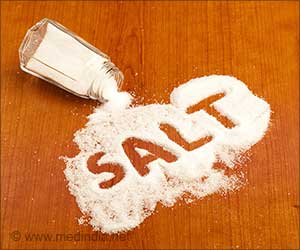
‘The findings of the study call in for personalized treatment for hypertension in older adults.’
Tweet it Now
Using an observational study design, Charité researchers were able to show that blood pressure-lowering (antihypertensive) drugs administered to achieve target levels of under 140/90 mmHg do not always have a protective effect. Results were even more pronounced for target levels below 130/80 mmHg. These findings are based on epidemiological data from more than 1,600 men and women, all of whom were receiving treatment for high blood pressure and were aged 70 or over at the beginning of the study in 2009. The researchers found that mortality was 40 percent higher in 80-year-olds with blood pressure levels below 140/90 mmHg than in those whose blood pressure exceeded 140/90 mmHg. Observations were similar in participants who had previously had a heart attack or stroke. Notably, mortality was 61 percent higher among patients whose blood pressure was under 140/90 mmHg than in patients whose blood pressure remained above this level despite antihypertensive treatment. "Our results show clearly that, within these groups of patients, antihypertensive treatment should be adjusted based on the needs of the individual," explains the study's first author, Dr. Antonios Douros of Charité's Institute of Clinical Pharmacology and Toxicology. He adds: "We should move away from the blanket approach of applying the recommendations of professional associations to all groups of patients." The epidemiological data used were collected as part of the Berlin Initiative Study (BIS), which is led by Prof. Dr. Elke Schäffner, Deputy Director of Charité's Institute of Public Health. At two-yearly intervals, researchers asked participants about their medical conditions and medicines, measured their blood pressure and kidney function, and analyzed both blood and urine samples. After six years, the data were statistically analyzed to determine whether and to what extent blood pressure might have an effect on mortality. This analysis took into account other potentially relevant factors, such as gender, body mass index, smoking status, alcohol consumption, diabetes and the number of antihypertensive drugs. "As a next step, we want to study which groups of patients actually benefit from antihypertensive treatment," remarks Prof. Schäffner.
Source-Eurekalert













